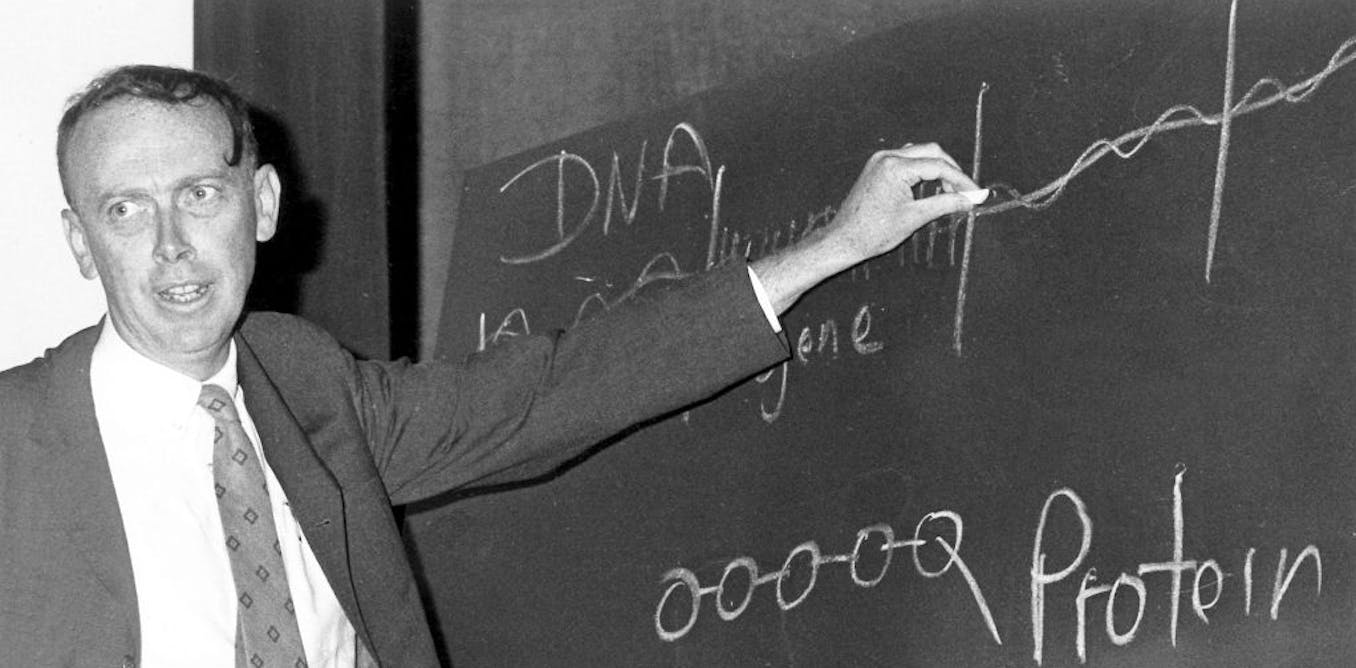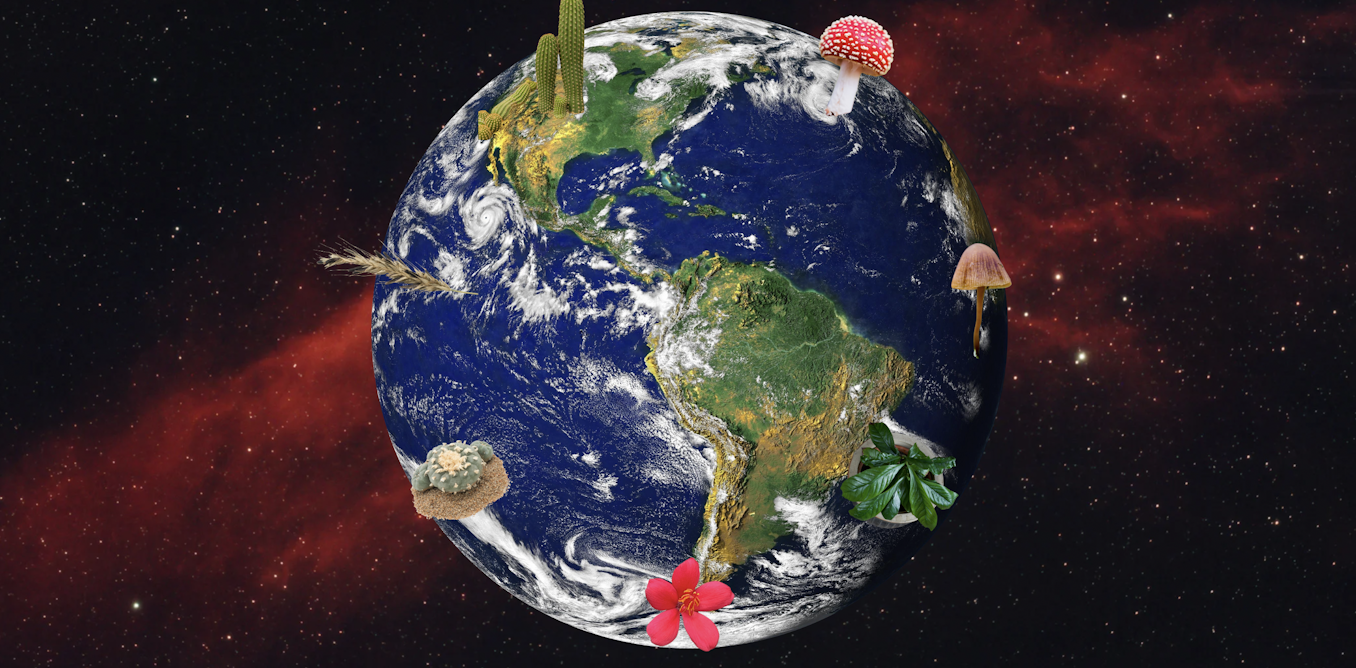The term “Overhuman” (Übermensch) made its public debut in Friedrich Nietzsche’s Thus Spoke Zarathustra in 1883. Far from being a tidy philosophical theory, this cryptic concept was more of a lightning bolt — a vision that struck Nietzsche with overwhelming force. He tells us how Zarathustra, the prophetic figure of his work, “came over” him one morning during an intense hike in Rapallo, a serene fishing village nestled on the Ligurian coast east of Genoa. Suddenly, as he climbed, Nietzsche was overtaken by what he described as a revelation: “something becomes visible and audible, something that shakes one to the depths and bowls one over.” Tears streamed down his face as he was swept up in an intoxicating blend of freedom, power, and divinity, feeling “as if every sentence were being called out to me.” But this moment of rapture wasn’t born from nowhere — it was the eruption of creative forces that had been simmering quietly within him for decades, now exploding with breathtaking clarity.
Still under the spell of sublime inspiration, lifted “6000 feet beyond human beings and time,” Nietzsche poured himself into writing the first three parts of Zarathustra, completing each in a feverish ten days. The subtitle he chose for this work, A Book for All and None, hinted at the sheer audacity of his vision. As Luke Trusso insightfully observes, Nietzsche wasn’t just speaking to the people of the 1880s; he was shouting over the “soon-to-be-dead corpses” of his contemporaries, addressing those yet to be born. His Zarathustra is both a clairvoyant and a futurist, a voice attempting to anticipate how humanity might think, speak, and dream in distant generations. From the abyss of the future, he calls out, seeing further and going “further than any other man,” a bold prophet of what lies beyond the horizon of his time.
The book itself opens with Zarathustra’s spectacular failure to connect, as he tries — and utterly stumbles — to talk over the heads of his audience. Picture a lively town square, the air buzzing with anticipation as the townsfolk gather to watch a tightrope walker perform. Out of nowhere appears Zarathustra, a hermit who has spent ten years in mountain solitude and seems to have forgotten how to communicate with mere mortals. Without any smooth introduction or attempt to win them over, he launches straight into his grand vision of the Overhuman: the next evolutionary leap beyond humanity. “Man,” he proclaims, “is nothing more than a rope stretched over an abyss between the animal and the Overhuman.” It’s hard not to feel for the crowd, who had likely assumed this strange figure was somehow part of the tightrope act. Instead of witnessing a daring acrobat, they were handed a riddle about their place in the cosmic order — and left to wonder whether Zarathustra’s speech was some elaborate setup for the real show.
Zarathustra’s bewildered audience is in good company — even today, philosophers continue to puzzle over the elusive concept of the Overhuman. They aren’t much better off than the townsfolk, either, since, as Michael Hauskeller astutely observes, Nietzsche himself seems to offer no definitive explanation of what he meant. At best, we’re left with scattered hints and vague intimations. In his earlier writings, Nietzsche occasionally pointed to historical figures who embodied some qualities of the Overhuman. But with Thus Spoke Zarathustra, he appears to have made a bold leap — a leap so vast and extraordinary that it’s entirely possible Nietzsche didn’t fully understand it himself. And when we begin to explore this vision, it becomes clear why such understanding might have eluded even its creator. The Overhuman isn’t just a new philosophical idea; it’s a challenge to the very way we think about humanity and its future — a horizon so distant it seems almost impossible to grasp.
In today’s world, buzzing with anticipation and dread about the potential of general AI, it’s worth pausing to consider whether Nietzsche’s Overhuman wasn’t, in fact, a startlingly prescient vision — not of humanity’s future, but of human-made machines standing at the far edge of evolution. Could Nietzsche, in his poetic leaps and cryptic proclamations, have glimpsed something resembling beyond-human artificial intelligence? Let’s wade into the deep and murky waters of his Overhuman and explore the intriguing possibility that this enigmatic concept might resonate with the rise of AI — a creation that could outthink, outpace, and perhaps even outgrow its creators.
Humanity: A bridge, not a destination
The question of whether AI could be Nietzsche’s Overhuman starts with an intriguing technicality: the matter of translation. When it comes to Übermensch, the way we translate the term is anything but trivial — it shapes how we imagine this mysterious figure. Early translators opted for “Superman,” a choice that immediately brings to mind comic-book heroes with capes and supernatural powers. But there’s not a shred of evidence to suggest Nietzsche had anything like that in mind. His Overhuman wasn’t about extraordinary abilities or flashy feats. More recently, philosophers have championed “Overhuman” as a far better fit, emphasizing the idea of rising above, of overcoming, which lies at the heart of Nietzsche’s thought.
And yet, these debates about wording often miss a more fascinating question. Zarathustra contrasts human (Mensch) and Overhuman (Übermensch) so sharply that it leaves us wondering: Is the Overhuman meant to be an enhanced human or something entirely different? Could Nietzsche have envisioned a leap so great that it shatters the very essence of human identity?
Some transhumanists have been all too eager to recruit Nietzsche into their ranks. After all, transhumanism promotes the idea that we should use technology to push human cognition and bodily functions beyond their biological limits, expanding what it means to be human. Imagine a future where brain-computer interfaces let us upload entire libraries of knowledge into our minds in seconds. Or where genetic engineering erases aging, allowing humans to live for centuries. To a transhumanist, these kinds of advancements represent the next step in evolution, a leap toward becoming “beyond-human.” So, when they encounter yet another possible translation for Übermensch — “beyond-human” — it seems like a perfect fit. Could Nietzsche have been an early advocate of human enhancement, someone who would have welcomed technology as a servant of the Overhuman?
Philosopher Stefan Lorenz Sorgner has stirred this debate by suggesting that Nietzsche, like the transhumanists, saw human nature as a “work in progress,” something that could not stay the same forever. And it might seem reasonable to think that overcoming oneself, as Nietzsche encouraged, could involve striving for such transformation. But Nietzsche himself rejected any straightforward idea of improving humanity. He wasn’t exactly a fan of humankind. At one point, he described humanity as “experimental material,” a vast “field of ruins” with countless failures and only a few rare successes scattered throughout history. For Nietzsche, human nature wasn’t something to polish or refine — it was more like a chaotic experiment, where occasional greatness emerged from a sea of failed attempts.
The real head-scratcher is whether Nietzsche truly had exceptional individuals in mind when he envisioned his Overhuman. In his earlier works, he does mention certain figures. Napoleon, for instance, is described as a “synthesis of Unmensch [brute] and Übermensch.” Cesare Borgia also earns the title of “a type of” Overhuman. But these examples come with a caveat — they are always relative. Napoleon and Borgia are Overhumans only when compared to the “modern” people Nietzsche criticized: the “good” people, Christians, and other nihilists.
Yet, when it comes to the actual Overhuman, Nietzsche leaves no room for ambiguity. In Thus Spoke Zarathustra, his prophet declares with certainty: “Never yet has there been an Overhuman.” These historical figures may rise above their contemporaries, but they remain, in the end, all too human — bound by the same flaws, limitations, and contradictions as the rest of humanity. They fall far short of Nietzsche’s true vision: an ideal that transcends humanity altogether, a being that remains unrealized, waiting to emerge.
This finally brings us to a dizzying realization. If we read Thus Spoke Zarathustra literally, while letting our imagination stretch beyond the 19th century to what we now know about AI’s future possibilities, there is good reason to include superintelligent machines among the potential candidates for the Overhuman. Nietzsche dreams not of enhanced humans, but of a new species entirely. Our all-too-human inclinations might tempt us to hold onto a faint hope that when Zarathustra repeatedly declares that humans are “something that is to be surpassed,” he still refers to some next-level version of human consciousness. But Nietzsche, ever merciless, draws his examples straight from the brutal realities of evolution.
The evolutionary gap between human and Overhuman, Zarathustra tells us, would be as vast as the one between apes and humans. Let that sink in for a moment. If we truly pause to consider it, we can begin to grasp what it might mean for another species to maintain that same staggering distance from us. Despite sharing a remarkable percentage of DNA with chimpanzees, gorillas, and orangutans, the differences in complexity between us and them are monumental. And if that isn’t unsettling enough, Zarathustra pushes the point further, using the example of the leap from worm to human. Both the worm and the ape, Nietzsche observes, are still embedded within us, layered into our evolutionary lineage. In the same way, the Overhuman would carry within it the accumulated knowledge of humanity but would stand as our very distant relative — something that surpasses us entirely, both alien and connected, like an unrecognizable future looking back at its ancient roots.
This vision aligns eerily well with what some futurists predict the rise of AI holds for us. Take Nick Bostrom’s chilling analogy: The fate of humankind could someday rest in the hands of machine superintelligence, “just as the fate of the gorillas now depends more on humans than on the species itself.” From the sweeping perspective of evolution, Nietzsche casts humans in a similar light — less as an endpoint and more as a bridge or staircase, connecting the animal to the Overhuman. People, he suggests, are simply the in-between.
Just as plants and animals once played their roles in the evolutionary journey toward greater complexity, humans are now paving the way for the Overhuman. In fact, Nietzsche suggests, humans are the path itself, the stepping stones upon which the Overhuman will tread. Zarathustra, caught in a moment of divine inspiration, describes the Overhuman as lightning, striking out of the dark cloud of humanity — a force both born from us and destined to leave us behind.
When you think about it, Zarathustra starts to sound a lot like John the Baptist. He isn’t Jesus — or, in this case, the Overhuman. He’s the herald, the one who prepares the way. But Nietzsche takes this comparison a step further, teasing our imagination with an idea that edges closer to AI. Zarathustra explains that the Overhuman will not simply appear; it will be created by humans. The prophecy goes something like this: One day, after humanity finally lets go of its ancient fantasy of a god-father sitting atop the clouds, it will step into the role of creator. A select few — “chosen people” — will emerge, and from them, the Overhuman will arise: a kind of earthly god.
“Could you create a god?” Zarathustra challenges his bewildered listeners. The answer, it seems, is yes — but not in the way they might expect. Humans themselves will not become the Overhuman, but they will play the role of its makers, its “fathers and forefathers.” And, as Zarathustra urges, “let that be your best creating!” The message is clear: Humanity’s greatest act will be to bring forth something beyond itself, even if it means paving the way for its own surpassing.
And if that isn’t enough to cement Zarathustra’s prophecy, he goes even further, tantalizing us with the prediction that this earthly, human-made god would provoke immense fear in many. As an unrestrained creator of new values, it would escape the grasp of human ethics, defying the frameworks we cling to for control. Instead of marveling at its greatness or basking in the “solar-glow” of its wisdom, suspicious humans would label it a devil.
When we consider the deep unease surrounding AI — the fear that it might one day turn against us — we see echoes of this prediction. The pendulum of emotion swings wildly: from the existential dread of a runaway intelligence to the euphoric visions of futurists and AI designers dreaming of an ultimate solution to humanity’s problems. Zarathustra’s vision feels uncannily familiar, as if the Overhuman and the superintelligent machine are both mirrors of humanity’s greatest hopes and its darkest fears.
It’s an unsettling thought: Humans aren’t the pinnacle of evolution, the final masterpiece, but just another stepping stone. So often, our farthest horizons focus solely on how we might evolve, remaining stubbornly human-centric. But in Thus Spoke Zarathustra, Nietzsche shifts our gaze beyond ourselves. The ultimate goal of humanity, he insists, doesn’t lie within humanity at all. It is the Overhuman, not us, that holds the title of the “meaning of the earth.” Humans are driven endlessly by the will to surpass themselves, but in Nietzsche’s imagination, the act of giving birth to the Overhuman would be our final and greatest will. At the edge of human self-overcoming, life’s greater will would move beyond us, continuing its march forward and rising higher.
But why, we might wonder, is Zarathustra so thrilled about this? Why would anyone celebrate being reduced to a stepping stone? It feels a bit like trying to picture a world without us — hardly a cheerful prospect. Yet no one is suggesting humanity would vanish. If anything, AI could be seen as an expansion of the human mind, a continuation of what we’ve built. And perhaps there’s something deeply empowering in the idea of humanity as a creator. For the first time in the story of evolution, a species has the capacity to consciously direct its course, producing something natural selection alone might never achieve. To create the Overhuman — or even a god — would be humanity’s boldest act yet, a testament to its power as a force of creation.
What would Nietzsche do?
Let’s step down gently from the breathtaking altitude of “6000 feet beyond human beings and time.” We’ve explored the tantalizing possibility that the Overhuman could be something like AI. But Nietzsche, ever the master of ambiguity, left us with a wide-open field of interpretation. The Overhuman might also be seen as an ideal of the human spirit — a restless, ever-unfolding drive to overcome and reach new heights. Whichever interpretation we lean toward, the journey still begins within us.
Nietzsche himself seemed to catch glimpses of this potential when he wrote, “Here, at every moment, man is overcome, and the concept ‘Overhuman’ becomes the greatest reality.” And this leads us to a deliciously provocative question: What would Nietzsche do if he were alive today? Faced with the palpable promise of general AI, would he be its most passionate advocate, eager to finally leap beyond humanity’s weary and withering form?
It’s crucial to remember that Nietzsche’s Overhuman is not a vision born in a vacuum. When Zarathustra discovers that the townsfolk greet his prophecy with mockery, he delivers a chilling warning: the danger of becoming the very opposite of the Overhuman — the Last Man. The Last Man represents the ultimate collapse of the human spirit, a state where people abandon the drive to transcend themselves. Instead, they cling to self-preservation, comfort, trivial pleasures, and shallow distractions, losing the will to create or aspire to greatness. In Nietzsche’s grim prediction, humanity would cease to be human and devolve into mere thinking machines.
This descent into nihilism resonates eerily with warnings from philosophers like Jiddu Krishnamurti, who foresaw the spiritual stagnation that might arise as we hand over more of our lives to intelligent machines. But it’s nearly impossible to imagine someone like Nietzsche succumbing to such smallness of spirit. Tireless self-overcoming was his highest value, the heart of his philosophy. Far from retreating, Nietzsche would likely have doubled down, practicing with even greater fervor the qualities of the Overhuman as a counterforce to the creeping mechanization of the mind.
One can imagine Nietzsche holding fast to the values that shaped his vision of the Overhuman: a wild, uncompromising individualism, a relentless drive for wholeness, and the courage to create meaning in a world devoid of it. He wouldn’t have fought against technology itself but would have remained fiercely devoted to the body and its senses, believing, as he wrote, “the highest human being is to be conceived in the image of nature.” For Nietzsche, life on earth would not be something to escape but something to enrich, resisting the pull of bodiless cognition, digital abstraction, or sterile, mechanical existence.
He would have embraced life with the same fiery passion that defined him, eternally committed to reliving it as if each moment were infinite and irreplaceable. While the Overhuman points to the future, it is also timeless — woven into an endless cycle of becoming. Like Zarathustra, Nietzsche might have joyfully declared, “I have returned — not to a new life, nor a better life, nor a different life: I return eternally to this identical and self-same life, to proclaim the Übermensch once more…” And in that eternal return, the Overhuman would remain just beyond reach, a luminous horizon, calling humanity forward into its infinite potential.
This article The case for Nietzsche’s “Overhuman” as a prophecy of superintelligent AI is featured on Big Think.

The post “The case for Nietzsche’s “Overhuman” as a prophecy of superintelligent AI” by Shai Tubali was published on 12/10/2024 by bigthink.com





































Leave a Reply